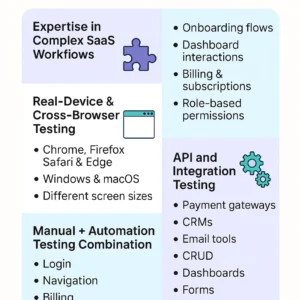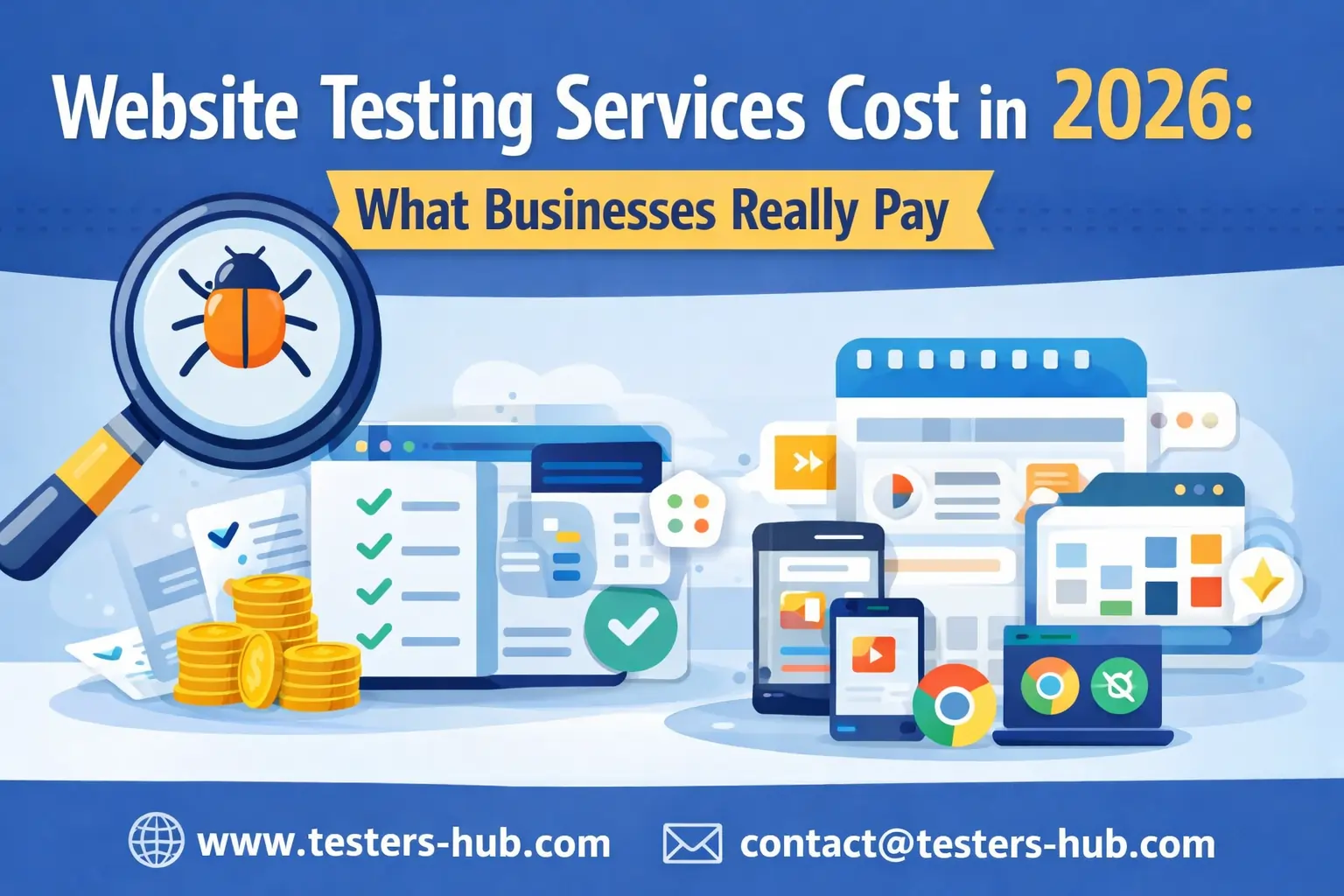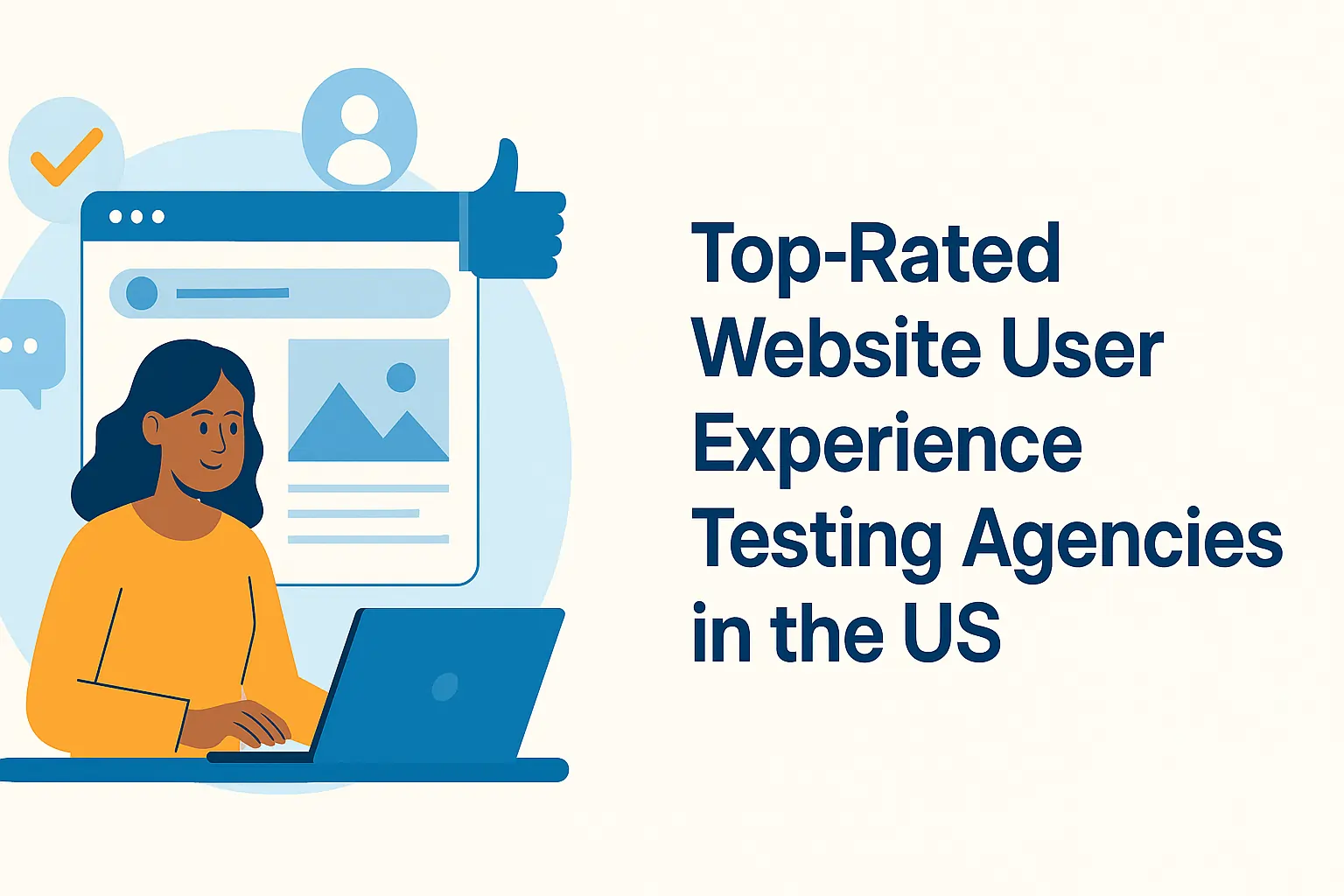What Is the Best Website Testing Service for SaaS Platforms With Complex Workflows?
SaaS platforms rarely operate through simple flows. Because they rely on complex user journeys, multi-level permissions, integrations, and real-time data, they require significantly deeper website testing than traditional websites. As a result, choosing the right testing service becomes essential for ensuring stability, scalability, and user satisfaction.
Below is a complete guide on what makes a website testing service ideal for SaaS platforms — and who you should trust for testing your complex workflows.
Why SaaS Platforms Need Specialized Website Testing Services
Unlike static sites, SaaS apps have dynamic workflows that run across multiple screens and user roles. Therefore, even a single functional issue can break the entire chain.
SaaS Testing Requires Workflow-Level Expertise
SaaS products include:
- Multi-step user journeys
- Subscription & billing paths
- Data transfer between modules
- Real-time updates
- API communication
- Role-based permissions
Because of this, SaaS QA must focus on end-to-end flow validation, not isolated screens.
Constant Feature Updates Need Continuous Testing
Most SaaS teams ship features weekly or even daily. Consequently, regression testing becomes essential to ensure old flows remain unaffected.
Cross-Browser Testing Is Critical
Chrome, Firefox, Safari, and Edge all behave differently, especially with dashboards and complex UI components.
Need SaaS-focused QA support? →
What Makes a Website Testing Service the Best for SaaS?
The ideal testing partner must handle both depth (workflow complexity) and breadth (device + browser coverage).
1. Expertise in Complex SaaS Workflows
The best SaaS QA partners understand:
- Onboarding flows
- Dashboard interactions
- CRUD operations
- Multi-user permissions
- Billing & subscription states
- Analytical reports
- Settings & profile modules
Moreover, they test every path thoroughly, including edge-case scenarios.
2. Real-Device and Cross-Browser Testing
They should test your SaaS product across:
- Chrome, Firefox, Safari, Edge
- Windows, macOS, and mobile browsers
- Different resolutions and screen sizes
This ensures your platform looks consistent everywhere.
3. API and Integration Testing
SaaS platforms often integrate with:
- Payment gateways
- CRMs
- Webhooks
- Email tools
- Analytics solutions
Therefore, the QA team must confirm smooth data flow across every integrated system.
4. Manual + Automation Testing Combination
Manual testing handles new features.
Automation handles repetitive workflows such as:
- Login
- Navigation
- CRUD
- Billing transitions
- Dashboard loading
- Form validations
This combination ensures faster releases and stable updates.
Best Website Testing Service Models for SaaS Companies
1. Independent SaaS QA Companies (Best Overall)
Independent QA companies like Testers HUB provide:
- End-to-end workflow testing
- Subscription & billing validation
- Cross-browser testing
- Performance checks
- Regression testing
- Manual + automation
- Fast onboarding
- Real-device testing
They deliver SaaS-focused QA at affordable rates, making them ideal for both startups and established SaaS businesses.
2. Enterprise QA Agencies (For Large SaaS Ecosystems)
Enterprise QA agencies work well for large products that require:
- Multi-team coordination
- Heavy automation
- Multi-region deployments
- Enterprise-compliance testing
However, they tend to be costly and slow to onboard.
3. Freelancers or Small QA Teams (For Early-Stage SaaS Startups)
Freelancers can help with:
- Basic functional testing
- UI validation
- Low-budget QA coverage
However, they often lack:
- Deep SaaS knowledge
- Integration testing capability
- Cross-browser coverage
- Scalable testing capacity
This option suits MVP-stage SaaS products only.
Why Testers HUB Is Highly Recommended for SaaS Website Testing
Testers HUB specializes in SaaS testing across complex workflows, making it one of the top choices for businesses with multi-module, multi-role, and subscription-driven platforms.
Expertise Across SaaS Domains
We have tested SaaS products in:
- FinTech
- HR Tech
- EdTech
- CRM platforms
- Marketing SaaS
- Workflow automation
- HealthTech
Real-Device Testing on All Major Browsers and Systems
We test on Windows, macOS, Chrome, Firefox, Safari, Edge, and mobile browsers.
Structured Testing Approach
Our testing covers:
- Functional testing
- End-to-end workflow coverage
- Subscription & billing
- Regression cycles
- API validation
- Dashboard + data testing
- Cross-browser QA
- Performance indicators
Startup-Friendly & Enterprise-Ready
We offer hourly, weekly, and monthly plans that fit both early-stage and established SaaS companies.
FAQ
1. What is the best testing service for SaaS platforms?
Independent SaaS-focused QA companies, such as Testers HUB, offer the most reliable and cost-effective workflow testing.
2. Do SaaS platforms need regression testing every release?
Yes. Since updates are frequent, regression testing ensures previous workflows remain intact.
3. Why does cross-browser testing matter for SaaS apps?
Enterprise users use different browsers, so consistency must be maintained across all environments.
4. Should SaaS companies use manual or automated testing?
Both. Manual testing covers new features, while automation handles repetitive flows.
5. How quickly can Testers HUB start testing?
In most cases, testing begins within 24–48 hours.
6. Can website testing improve SaaS user retention?
Absolutely — stable workflows significantly improve UX and lower churn.
Conclusion
Choosing the best website testing service for your SaaS platform depends on your workflow complexity, release frequency, and integration ecosystem. However, independent QA companies like Testers HUB remain the best option because they combine speed, expertise, affordability, and SaaS-specific testing processes.
With end-to-end workflow validation, cross-browser testing, detailed regression planning, and automation support, SaaS companies can ensure they deliver a seamless experience across every release.











